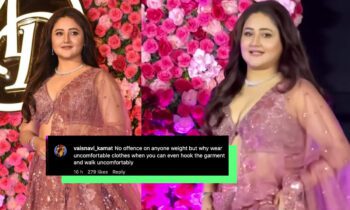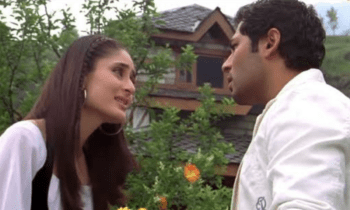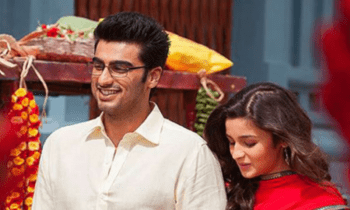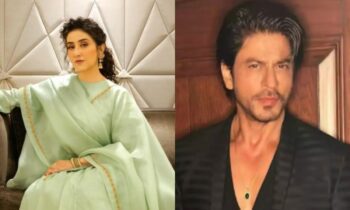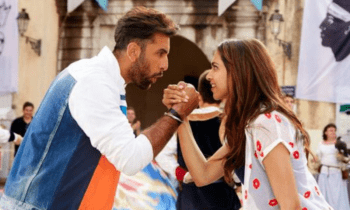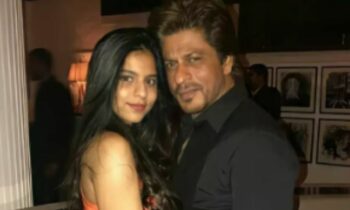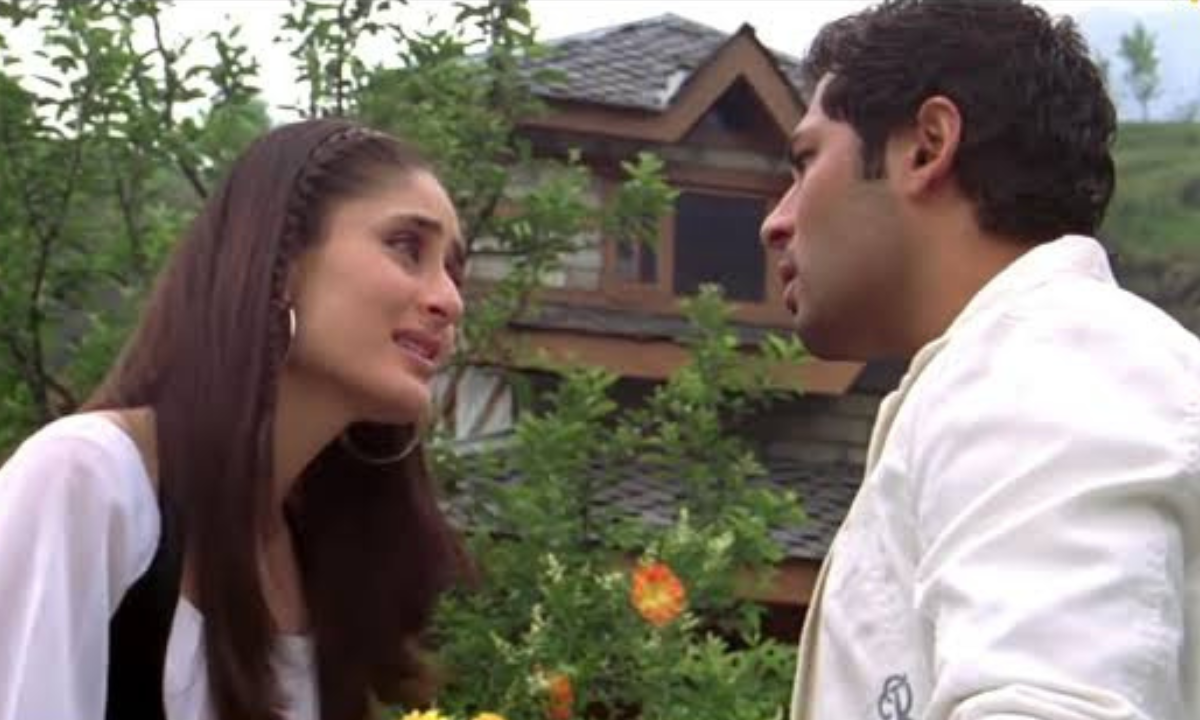Malcolm & Marie Review: Zendaya, John David Washington Are A ‘Tour De Force’ In This Cleverly Meta Film About Relationships And Criticism
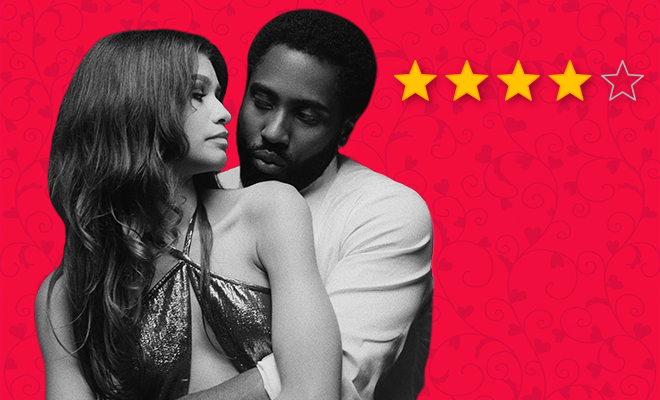
The irony that I am writing a review for Malcolm & Marie, a film that lambasts film criticism as we see it today, is not lost on me. If anything, it actually makes this a hilarious exercise, because in my head, I’m constantly thinking what the film’s male protagonist, Malcolm, would say about my views to his girlfriend Marie. And would Marie relate to it? You might wonder why it concerns me so much what two fictional characters think about my writing. But a good film does have that effect on you, doesn’t it? Directed by Sam Levinson, and starring Zendaya and John David Washington, Malcolm & Marie is a clever, meta commentary on problematic, co-dependent relationships and criticism. Not film criticism exactly, but the visceral criticism that two people in love are capable of unleashing on each other.
The film has been shot entirely in black and white, during the pandemic, with a very minimal crew and just two actors on screen, engaged in a dialogue. And for that, everyone deserves an applause.
Plot: The ‘review’ that neither of them expected
Malcolm & Marie is a lot of other things simultaneously—a story about love, relationships, the art of filmmaking, criticism, culture, gender roles, credit and ownership…. It is also a film made during the pandemic and therefore does a pretty good job of capturing how most relationships have felt stifled indoors during the lockdown, with nowhere to go but to each other. In such situations, even a small mistake can spark a fire that can threaten to burn the entire relationship down.
And that’s exactly what happens. Malcolm Elliot is a filmmaker who’s made a film about a 20-year-old Black woman and her tragic life story riddled with substance abuse. He returns home from his movie’s premiere night, his gorgeous girlfriend Marie on his arm, and is a mixture of nervous anticipation and self-assuredness. That’s before Marie tells him that he forgot to thank her in his speech, even though she was the one who inspired his film. It starts off as a simple couple’s fight where girl thinks the guy doesn’t appreciate her enough and the guy thinks that the girl is overreacting, even after he apologised for it a hundred times. But it’s not that. A different kind of review is waiting in the wings for them both.
Over the course of the night, Malcolm and Marie embark on what can easily be described as a verbal boxing match—sometimes entangled like lovers, and other times drawing blood with their words, about themselves and their problematic love.
The film is such an ‘authentic’ commentary on gender dynamics in relationships
My job and my personal beliefs usually revolve around debunking gender stereotypes. But I believe that men and women do have their distinct ways of arguing. In Malcolm & Marie, the couple is absolutely catering to personality and gender stereotypes. So while Malcolm is your typical megalomaniac film director who thinks he’s above it all, and Marie is a recovering addict who clings on to anything that can keep her from the darkness in her life, they are also playing ‘the man’ and ‘the woman’ in the argument.
An absolutely incisive scene takes place when Marie is in the bathtub and Malcolm barges in to tell her how she seeks control because she can’t imagine someone wanting to be with her because they love her. Malcolm argues just as men like him usually do—they’re cruel, not holding back, and going to any lengths to prove themselves correct. It’s driven so much by the emotion of aggression, fuelled by the basic instinct to establish supremacy and flex their manhood.
View this post on Instagram
We get a similar scene with Marie, where she eviscerates Malcolm with her words. But I thought the dialogues were written so well to perfectly encapsulate how women tend to argue… using carefully measured words, minimum but wielding maximum impact. Cool, calm and collected and logical in her reasoning, and never cruel.
View this post on Instagram
We do see both Malcolm and Marie break down; again, Marie reveals her vulnerability while Malcolm, the man that he is, sheds maybe a single man tear and is unable to express his feelings in so many words.
I loved how the whole film plays out these gender dynamics. Marie withholds the real reason for the fight and it takes step-by-step unravelling to get to it. Malcolm temporarily forgetting they’re in the middle of the fight because sex is on his mind. And both of them switch it on and off, because isn’t that how couples are in a fight? She’ll fight with you but still make you Mac & Cheese. And he’ll think you’re intolerable but he’ll still want sex and validation from you.
Also Read: The White Tiger Review: Adarsh Gourav Roars In A Gripping, Eviscerating Satire About India’s Predatory Class Struggle
Sam Levinson uses his characters to make one point and his filmmaking choices to make another. And together, that makes a clever film.
Malcolm & Marie is shot in black and white, on Kodak Double-X stock, with deep blacks and harsh whites, giving it this grainy feel of 50s and 60s movies. You’d think it’s to create that classic Golden Age of Hollywood look, which might lend a certain old charm to Malcolm and Marie’s love story. But it’s also probably a great way to evoke a certain sadness and melancholy that accompanied classic Hollywood glamour of the time. It was full of larger-than-life men smelling of eau de megalomania and women decked in shimmering gowns but were harbouring profound sadness in them. As for their relationships, they were often codependent, thriving on manipulation and the understanding that there was no way out.
The film’s trailer explicitly states that it is not a love story but a story about love. Most people might dismiss it as a gimmick to generate intrigue, but they couldn’t have put it more plainly. One of my favourite things about Malcolm & Marie is that it is constantly telling you what it is and what it is not, even while what’s happening on screen might look completely different. This quality of the film is mirrored in its two protagonists. So while Malcolm is all about the ‘show’, distracting you from what’s actually right there, you’ll catch on real quick if you just listen to what Marie has to ‘tell’. So while the film seems to focus so heavily on film criticism, it very evidently uses it to draw parallels with how reviewers critique films.
One of the best scenes of the film, for me, is where John David Washington is utterly masterful in a monologue about film criticism. The first review of Malcolm’s film is just out, and it is written by a white woman who wants to herald the film about a Black woman by a Black director as a political commentary. But Malcolm finds a way to get angsty over a positive review, which amuses Marie. She clearly sees through Malcolm, the egotist, and his manufactured pedantry, as he claims to love political films but doesn’t want that label for his own works.
In fact, she offers him some critique of her own about a pivotal scene in his film, dismissing his arguments about the political and cultural relevance of Black filmmakers telling stories of their people and how the male gaze can legit make a difference to how an audience experiences a scene. And the way he takes it is rather telling.
Also Read: Keira Knightley Says She Won’t Do Sex Scenes “Under The Male Gaze.” That’s A Pretty Powerful Statement.
If you need a little nudge to decide whose side of the debate you are in, all you need to do is notice how the everything from the way the camera pans on Zendaya’s body to the way she dresses and undresses, is all a conscious depiction of male gaze in movies. Similarly, the film itself, by choosing to infuse Black culture and work with people of colour makes powerful political statements, something that Malcolm was keen on dissociating his own film from. The stunning gown that Zendaya wore is from a Black designer (Jason Rembert of Aliette). Marie plays a Dionne Warwick song to convey her emotions to Malcolm in one scene. And both Zendaya and Sam Levinson have said that the decision to shoot the film in black and white was also a way of reclaiming the narrative.
Zendaya said “I couldn’t imagine this movie being shot in anything other than black and white. It feels like it was made for that and it really contributes to the story because of this idea of reclaiming the narrative of Black movie stars who in the black and white film era didn’t get their day or the same opportunities, love, or support. It wasn’t meant for them. So it was also an emotional choice to reclaim that and show these two actors in black and white on film.”
“When we think back through American cinema from the Golden Age of Hollywood through the introduction of color film, Black actors are noticeably absent. It felt like an interesting way to reclaim the glamour and iconography of that time and frame it in a different light,” said Levinson.
Marie was right. A film is a collective endeavour and it’s time to disseminate credit
The cinematography is by another Euphoria collaborator, Marcell Rév, and he mounts a beautiful film. I particularly love how close the camera gets to Malcolm and Marie in those fleeting moments of intimacy and then distant when they’re distant too. Even the scenes towards the end where we could see both Malcolm and Marie reacting to each other in silence are so impactful. Another very crucial character in the story is the house. I’m sure there were several aesthetic reasons and director’s vision in choosing a house with glass exteriors. However, it reminded me of that saying, “People who live in homes made of glass should not throw stones at other’s homes.” Both Malcolm & Marie are arguing, trying to uphold their emotions and their side of the argument higher, without realising there are chinks in both their armours. And it fits perfectly with how fragile and breakable the house they live in is. Every time their fight escalates and they say words that they can never take back, the glass house evokes a fear that it might shatter from all that hurt.
View this post on Instagram
I thought the outdoor scenes were stunning in black and white. The closing shot is a favourite because it is from inside the house, looking through a glass window at Malcolm and Marie, framed like a beautiful picture. The outdoors do give them the space to breathe, like how most of us have been feeling when we stepped out of our homes after months of confinement. Whenever they are outdoors, I thought they were much more calm and relaxed, and it felt like a perfect way to end the film.
Also Read: For The First Time, 3 Of The 5 Golden Globes 2021 Best Director Nominees Are Women. Here’s Why It’s A Bittersweet Feeling!
Zendaya and John David Washington’s performances are a ‘tour de force’, alright!
I’ve loved Zendaya from Euphoria, and considering almost entirely the same team is involved in making Malcolm & Marie, I saw heavy traces of that same magic recreated in the film. There was enough Rue in Marie to familiarise me with her. In fact, we don’t actually get much about Marie except from Malcolm, so my mind automatically filled in her backstory with elements from Rue’s, particularly pertaining to her substance abuse past. Zendaya emotes so much simply with her face, I was glad that some shots were continues and didn’t take away from the impact of watching her go through all those emotions as Marie.
View this post on Instagram
John David Washington was so… funny! I was kind of expecting him to be since the opening scene of the trailer itself shows us a glimpse of it. And thankfully that carries on in the rest of the film. Apart from the bathtub scene and the monologue about the film criticism, I loved that one sequence where he steps outside the house and is moving around, talking to himself, using his entire body to emote like Zendaya does with her face. And delivering those monologues with such intensity wouldn’t have been easy for either of them. Especially JDW! Even I was catching my breathe after watching that!
The two actors have hot chemistry that was, again, evident from the trailer. And even before I knew what the film was about or how much effort went into it, that 2.40-minute clip of them going at it with each other was enough to convince me to watch the movie.
Verdict
I debated hard on whether I wanted to dock that one point because I thought the film did get a bit self-indulgent in its third act and dropped the momentum. And I went with it, because somewhere I felt there a few things left unsaid. At the cost of sounding like the film reviewer that Malcolm annihilated in the movie, I can’t exactly tell you why that unfulfilled feeling took over in the end, but it did. Rest assured, unlike most other International reviewers, I didn’t feel insulted about the movie’s take on film criticism. In fact, I’ve consciously peppered my own review with inside jokes which might piss Malcolm off or make him laugh, depending on his mood!
Another complaint that I found in most reviews about Malcolm & Marie was that the film in the end didn’t amount to anything. Well duh. Remember I said, listen to what the film is trying to tell you about itself? Marie, in the first act itself, says that whatever they discuss tonight won’t amount to anything productive. There you go!
Malcolm & Marie is essentially about an argument between lovers in a problematic relationship that neither is likely to abandon easily. And that’s why, as most such couple fights are, this one is going to be highly unproductive and not really ‘go anywhere’. Such fights don’t get resolved because what can be the resolution of two people’s inherent personalities? We can’t change who we are overnight, can we? All we can do is decide if we want to live with it, or let it go.
I thought the film did a beautiful job of conveying the hurt that people in love are capable of inflicting on each other and the hopelessness that comes from knowing that despite it all, you cannot leave them. A very fitting story for the pandemic, if you ask me. And one thing that no critics can deny is that Zendaya and John David Washington are amazing in it. So go ahead and watch it, probably not with BAE on Valentine’s Day, because it will bring up your own fights. And you don’t want your evening to go off-script, do you?
Malcolm & Marie is currently streaming on Netflix.
https://thehauterfly.com/culture-2/fate-the-winx-saga-review-netflix-series-enjoyable-problematic-whitewashing/







